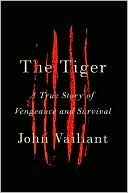More on this book
Community
Kindle Notes & Highlights
he lives in Russia, a country where many people will tell you that it’s impossible to live without breaking the law.
During the two decades prior to Markov’s birth, the Soviet Union lost approximately 35 million citizens—more than one fifth of its population—to manufactured famines, political repression, genocide, and war.
Though it was hailed as a positive development in the West, few Westerners fully grasp the toll perestroika took and continues to take on the country. Among Russians, it has since earned the ignominious nickname “Katastroika.”
Once, on a long bus trip through Primorye, a young man named Gena gestured to the bottle of vodka he had brought along and proclaimed, “It’s not vodka; it’s a time machine!”
What is amazing—and also terrifying about tigers—is their facility for what can only be described as abstract thinking. Very quickly, a tiger can assimilate new information—evidence, if you will—ascribe it to a source,
Under communism, there was room, albeit strictly controlled, for aspiration, and there was a State guarantee of basic security in terms of education, employment, housing, and food. But most of these assurances disintegrated after perestroika. Replacing them, along with crime, alcoholism, and despondency, were satellite dishes offering multiple channels
A Russian-American author once quipped that what Russians needed after perestroika wasn’t economic aid but a planeload of social workers, and this seems painfully true.
In the 1970s, after the Damansky Island clashes, a joke began circulating: “Optimists study English; pessimists study Chinese; and realists learn to use a Kalashnikov.”
In Asia today, wildlife trafficking is a multibillion-dollar industry, and roughly three quarters of all trafficked wildlife ends up in China, which has become a black hole for many endangered species.
There were grains of truth in all of these claims, but underlying them was a lack of collective morale, distrust of authority, and an ingrained passivity that is one of the enduring legacies of State-enforced disempowerment. But


